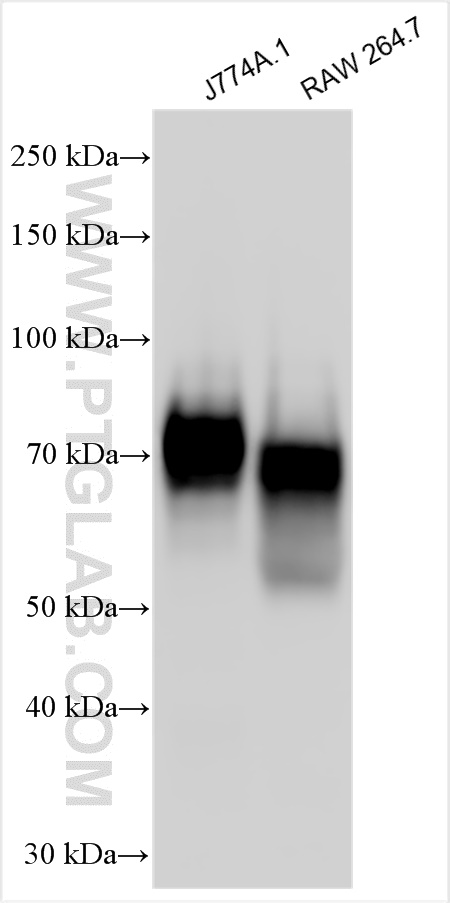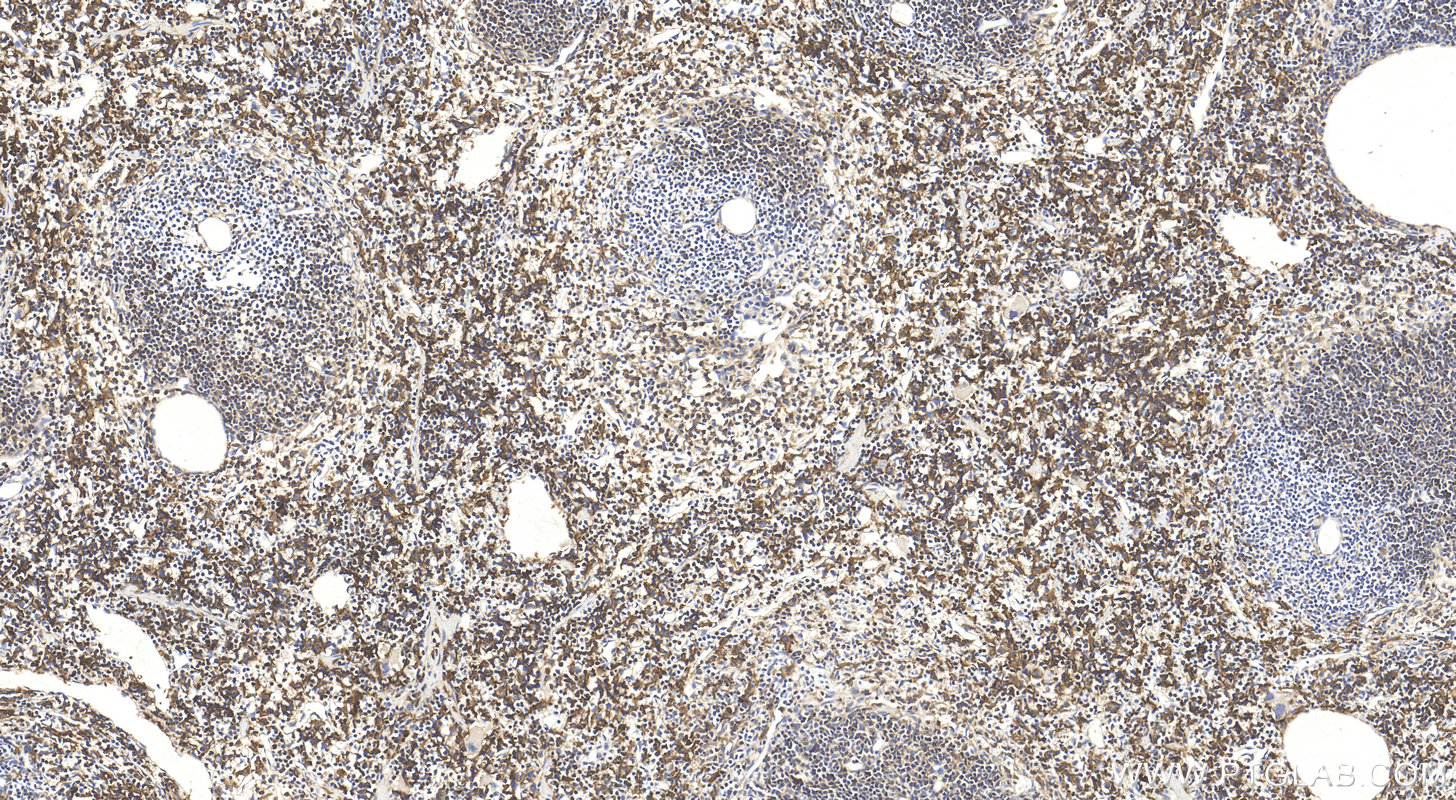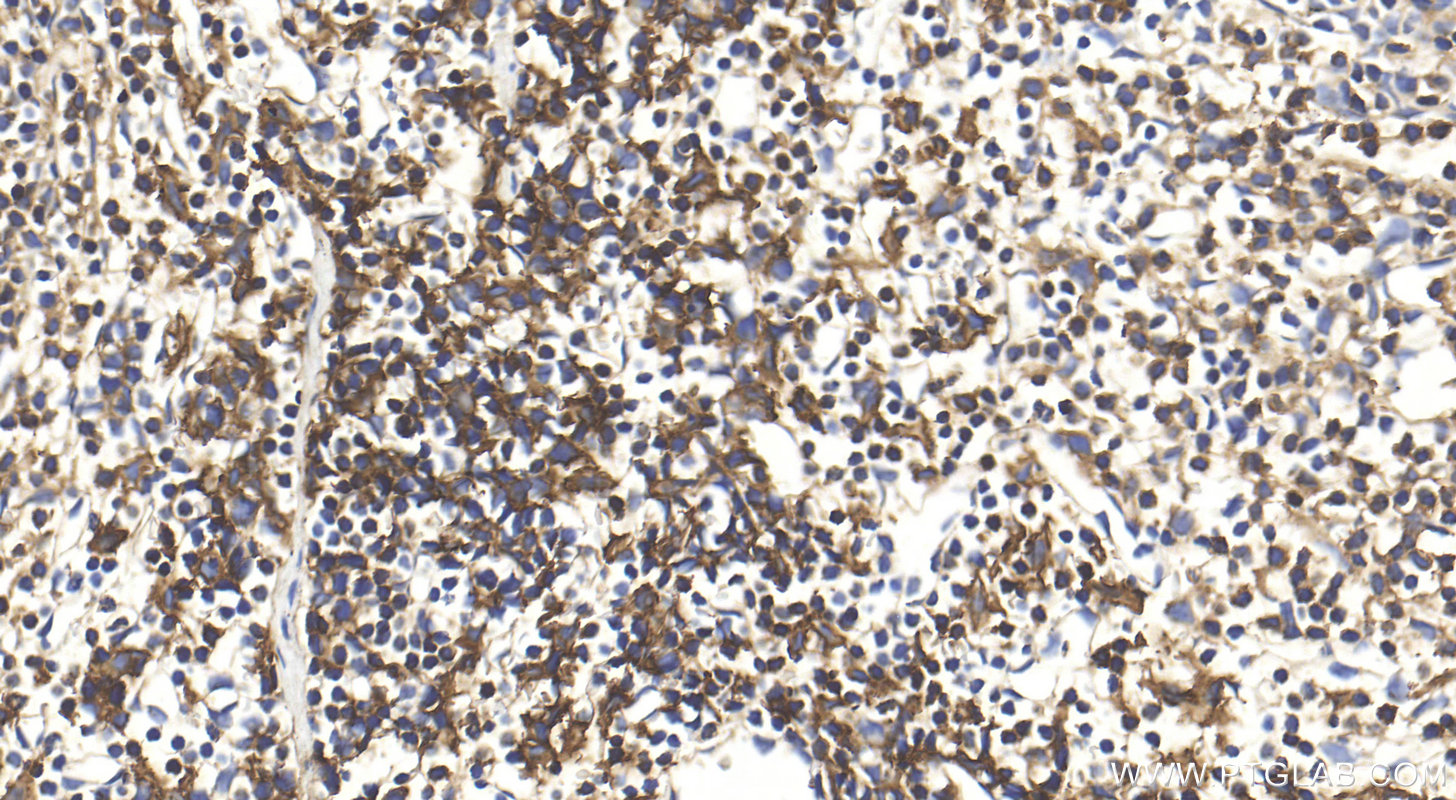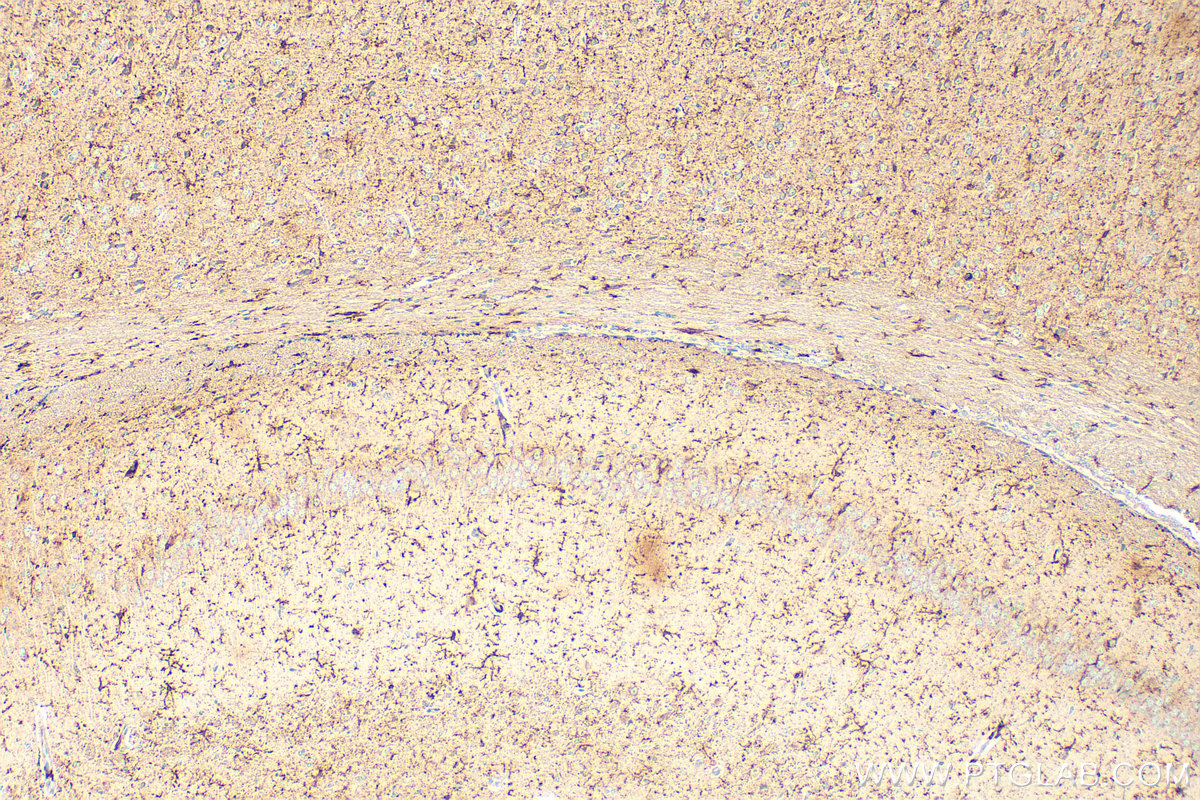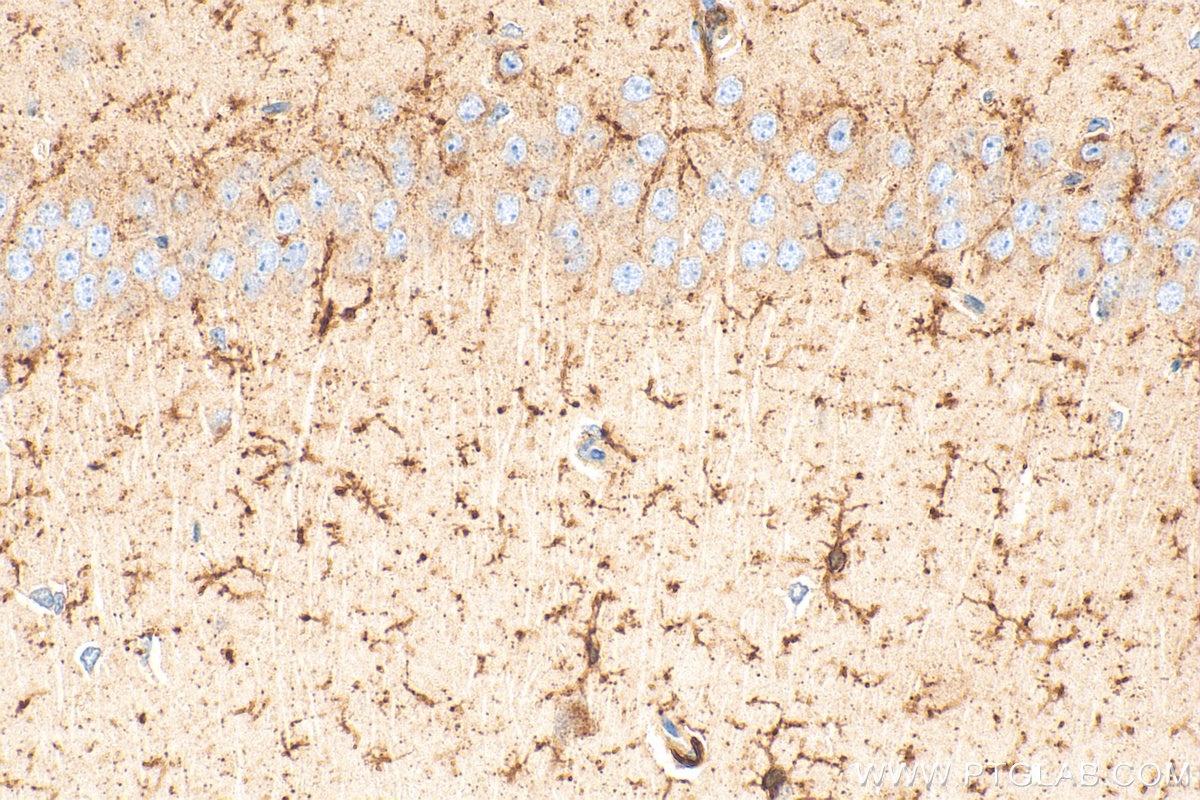验证数据展示
经过测试的应用
| Positive WB detected in | J774A.1 cells, RAW 264.7 cells |
| Positive IHC detected in | mouse spleen tissue, mouse brain tissue Note: suggested antigen retrieval with TE buffer pH 9.0; (*) Alternatively, antigen retrieval may be performed with citrate buffer pH 6.0 |
推荐稀释比
| 应用 | 推荐稀释比 |
|---|---|
| Western Blot (WB) | WB : 1:500-1:3000 |
| Immunohistochemistry (IHC) | IHC : 1:50-1:500 |
| It is recommended that this reagent should be titrated in each testing system to obtain optimal results. | |
| Sample-dependent, Check data in validation data gallery. | |
产品信息
32060-1-AP targets CD64 in WB, IHC, ELISA applications and shows reactivity with mouse samples.
| 经测试应用 | WB, IHC, ELISA Application Description |
| 经测试反应性 | mouse |
| 免疫原 |
CatNo: Eg2107 Product name: Recombinant Mouse CD64 protein (rFc Tag) Source: mammalian cells-derived, pHZ-KIsec-C-rFc Tag: C-rFc Domain: 25-297 aa of NM_010186.5 Sequence: EVVNATKAVITLQPPWVSIFQKENVTLWCEGPHLPGDSSTQWFINGTAVQISTPSYSIPEASFQDSGEYRCQIGSSMPSDPVQLQIHNDWLLLQASRRVLTEGEPLALRCHGWKNKLVYNVVFYRNGKSFQFSSDSEVAILKTNLSHSGIYHCSGTGRHRYTSAGVSITVKELFTTPVLRASVSSPFPEGSLVTLNCETNLLLQRPGLQLHFSFYVGSKILEYRNTSSEYHIARAEREDAGFYWCEVATEDSSVLKRSPELELQVLGPQSSAP 种属同源性预测 |
| 宿主/亚型 | Rabbit / IgG |
| 抗体类别 | Polyclonal |
| 产品类型 | Antibody |
| 全称 | Fc receptor, IgG, high affinity I |
| 别名 | Fcg1, Fc-gamma RI, Fcgr1, FcRI, High affinity immunoglobulin gamma Fc receptor I |
| 计算分子量 | 45 kDa |
| 观测分子量 | 70 kDa |
| GenBank蛋白编号 | NM_010186.5 |
| 基因名称 | Fcgr1 |
| Gene ID (NCBI) | 14129 |
| RRID | AB_3670181 |
| 偶联类型 | Unconjugated |
| 形式 | Liquid |
| 纯化方式 | Antigen affinity Purification |
| UNIPROT ID | P26151 |
| 储存缓冲液 | PBS with 0.02% sodium azide and 50% glycerol, pH 7.3. |
| 储存条件 | Store at -20°C. Stable for one year after shipment. Aliquoting is unnecessary for -20oC storage. |
背景介绍
Fcγ receptor comprise a multigene family of integral membrane glycoproteins that exhibit complex activation or inhibitory effects on cell functions after aggregation by complexed immunoglobulin G (IgG) (PMID: 17005690 ). CD64, also known as FcγRIA, is a high affinity receptor for the Fc region of IgG. It is expressed by monocytes/macrophages, activated neutrophils, dendritic cells, and early myeloid cells (PMID: 23293080; 19642859; 7680917). CD64 functions in both innate and adaptive immune responses. The calculated molecular weight of CD64 is 43 kDa, while the glycosylated CD64 has a higher apparent molecular weight.
实验方案
| Product Specific Protocols | |
|---|---|
| IHC protocol for CD64 antibody 32060-1-AP | Download protocol |
| WB protocol for CD64 antibody 32060-1-AP | Download protocol |
| Standard Protocols | |
|---|---|
| Click here to view our Standard Protocols |

